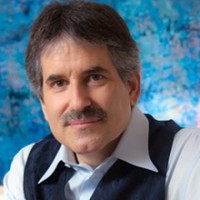Q: Traditionally, enlightenment has often been described as “ego-death.” Is it possible to attain a state where the ego actually dies?
A: Well, I’ve met one or two people in my life in whom it appeared that the ego had literally died. But in those rare cases, I don’t think it was a result of the individuals’ own choices or efforts—it was more like spontaneous combustion, an act of grace. So I do believe that the death of the ego is possible, but I don’t think it is an attainable goal. If something like that is going to occur, it’s beyond our control, and it’s extremely unlikely for most of us. I don’t personally think it’s possible for anybody, through the power of their will alone, to eradicate the ego completely. But the point is, it doesn’t really matter. If you are willing to face and take responsibility for your ego’s self-centered motives, conditioned responses, and often irrational impulses to such a degree that you are able to choose not to act on them, they might as well not exist. If you don’t act on them, the world is never going to know about them. There won’t be any karmic consequences. And that is a reasonable, realizable, attainable goal. So I am convinced that in this way, it is possible to transcend ego to a profound degree simply through the power of one’s own awakened intention to do so.
In the way that I teach, I try to get people first and foremost to recognize that they actually have an ego and begin to understand how it functions, and secondly to become serious about transcending it in a way that is significant. However, getting a highly developed, postmodern, narcissistic individual to take seriously for more than a brief moment the possibility of actually transcending their own ego is a difficult task. The very notion is just not part of our culture. But if it’s not going to happen as an act of grace, the individual has to want to achieve that more than anything else.
Indeed, to take that kind of responsibility for oneself and one’s own enlightenment is the ultimate challenge for any human being, and for most of us it’s just too demanding. We have been immersed in conditioned reactions and responses and ways of thinking for a lifetime, and there is a very powerful momentum within all of us that doesn’t stop or die simply because we decide one day that that would be a good idea. But if we want to evolve beyond ego, if we care deeply enough about the impact of our actions on others and the world around us, we can always choose, right now, not to act on any of it. At times it will be extremely difficult, emotionally and psychologically, but it is possible. And as far as I understand it, that’s the high road. That’s the real spiritual practice: the inspired choice to cease to act out of ego, over and over again, at all times, in all places, under all circumstances. In my understanding, that would be as significant as the death of the ego, if not more so. That would give birth to a noble human being who has inherent self-respect, dignity, and self-confidence simply because he or she is being true to a higher intention in the face of the temptation to do otherwise.
—
Andrew Cohen is a spiritual teacher and founder of the award-winning EnlightenNext magazine. Click to learn more about his new book Evolutionary Enlightenment: A New Path to Spiritual Awakening.


 Share on bsky
Share on bsky




Read 1 comment and reply